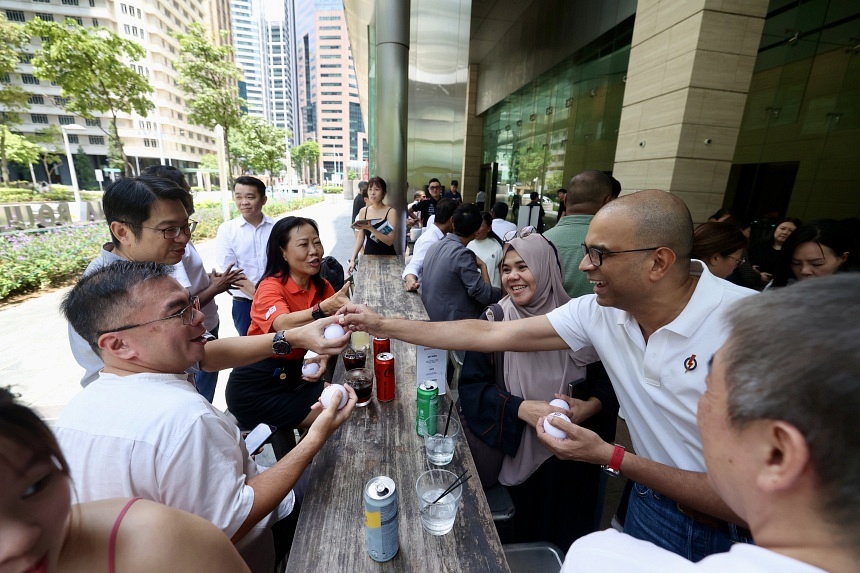SINGAPORE – By 2025, all of the People’s Action Party’s (PAP) 93 branches will have mental health ambassadors to promote mental well-being in every neighbourhood and support the work of MPs in addressing residents’ mental health concerns.
The party is joining hands with 13 community partners to refine and roll out mental health initiatives for the neighbourhoods.
This collaboration was announced by PAP Mental Health Group co-chairman Janil Puthucheary on Oct 10 at a networking session to connect partners, advocates, people with mental health conditions and MPs. The session was held at NTUC Centre to commemorate World Mental Health Day.
Currently, PAP has peer support networks in many constituencies to help those with mental health issues, PAP Mental Health Group co-chairman Wan Rizal said.
But these support networks are activated only when a case is raised, such as during a Meet-the-People session.
It is hoped that the mental health ambassadors can go a step further to help promote mental wellness within the community.
“This is important because mental health issues are so multifaceted, and it’s not something we can solve in one Meet-the-People session alone. This is where greater support from such ambassadors will value-add to our support for residents,” Dr Rizal said.
As different PAP branches have different demographics and issues, there will be some matchmaking between the community partners and branches, he added.
The 13 community partners are Annabelle Psychology, Calm Collective Asia, Campus PSY, How Are You LLP, It All Starts Hear, Limitless, Mental ACT, Mental Health Film Festival Singapore, O’Joy, Samaritans of Singapore, Silver Ribbon Singapore, Singapore Association for Mental Health and Total Wellness Initiative Singapore.
Dr Puthucheary said addressing mental health conditions is challenging and complex, as everyone has different lived experiences and varied needs.
“It is crucial that persons with mental health conditions have a voice in policymaking and initiatives, especially those aimed at helping them reintegrate and find a place in the community. By empowering these individuals and the community to act, we can achieve more support, and more types of support, for a more inclusive society,” he said.
There are plans to conduct more regular dialogues and learning journeys among the community partners so that they can share more about their work and capabilities, as well as give feedback on issues they have encountered on the ground.
Dr Rizal said the networking session on Oct 10 is planned to be the first of many.
“The goal is for everyone to hear from each other, share what they can bring to the table, identify gaps that need to be filled, then come up with tailored initiatives to be implemented in every neighbourhood. Ultimately, we want everyone to know that there is a supportive community and the PAP, whom they can turn to during challenging times,” Dr Rizal said.
Close to 100 community groups, advocates and individuals attended the networking session.
They took part in discussions to strengthen existing initiatives and to foster a more comprehensive and supportive mental health ecosystem.
Those with mental health conditions also shared their lived experiences.

